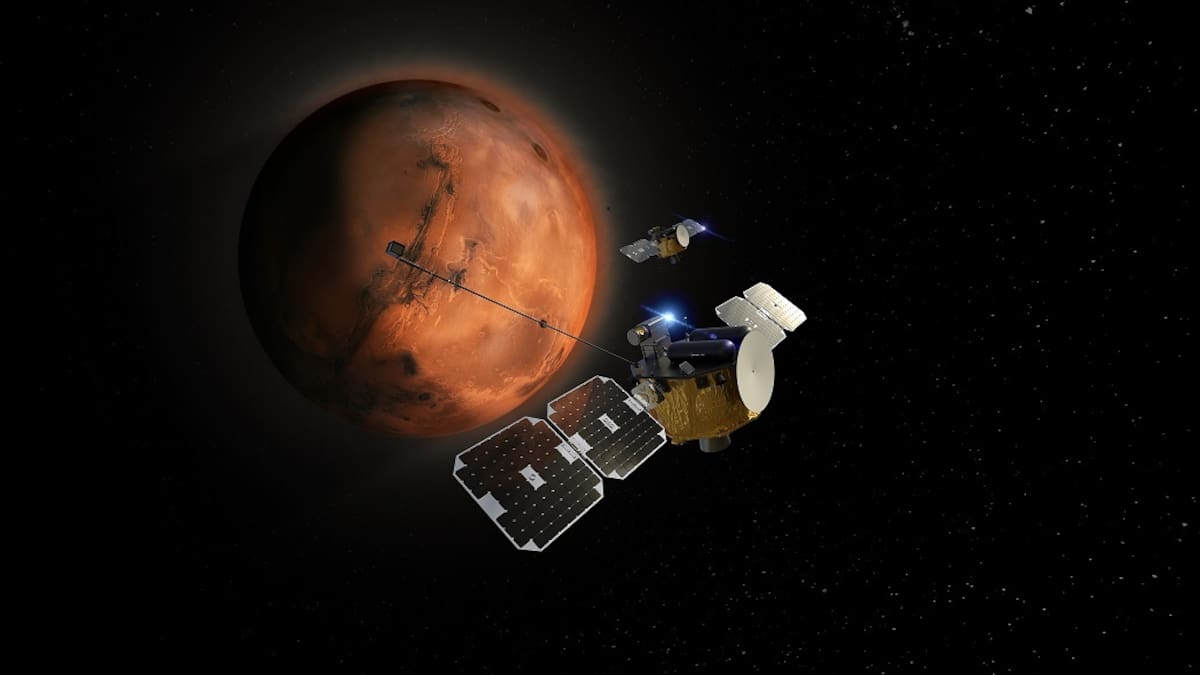The twin satellites, managed by the University of California, Berkeley, will reach Mars in September 2027.
Blue and Gold’s various Rocket Lab systems showcase the Kiwi-American firm’s reach, following the acquisition of multiple space companies.
They include reaction control systems developed in Auckland (for keeping the satellites in the correct orientation), propulsion tanks and satellite radios made in Long Beach, California, star trackers developed in Toronto and solar panels made in New Mexico.
Technical issues on Blue Origin’s side meant a postponement of the original launch date – scheduled for the time when Earth and Mars are in alignment for the shortest journey, which only happens once every 26 months.
It now means the twin spacecraft will now take a long way around.
After takeoff, the twin spacecraft will soar into deep space. But rather than turning toward Mars, the two orbiters will instead aim for Lagrange Point 2, or L2 – a cosmic balance point about 1.5 million kilometers from Earth, where they will sit in a “loitering orbit” for 12 months before proceeding to Mars.
Nasa says the entire Escapade mission will be executed for under US$100 million ($178m) under the US space agency’s Small Innovative Missions for Planetary Exploration (“SIMPLEx”) programme to develop low-cost missions.
All going well, Rocket Lab will one day have its hardware on the surface of the Red Planet, too.
In October last year, the firm revealed it was one of the contenders selected by Nasa to complete a study into retrieving rock samples from the surface of Mars (already collected by various rover missions) and returning them to Earth – something never done before.
It’s a modest contract, with huge potential, according to the firm.
“The study contract is US$625,000 [$1.02m]. The opportunity should the study concepts be progressed is in the billions,” Rocket Lab marketing and communications vice-president Morgan Connaughton told the Herald.
Chris Keall is an Auckland-based member of the Herald’s business team. He joined the Herald in 2018 and is the technology editor and a senior business writer.

